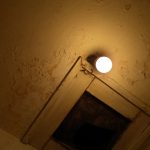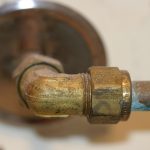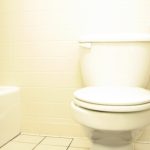Every responsible homeowner does their best to stay on top of home maintenance. This makes good sense, prevention is better than the cure, and this can be equally applied to your plumbing. That being said, some people are not as astute as they should be when it comes to their water bills. It’s essential to keep a close on your water bills and notice when you seem to use more water than you normally would. In this article, we will look at five common reasons why your water bill is rising and how you can fix the problem.
- A Dripping Faucet
Let’s face it, listening to the sound of a dripping faucet when you’re trying to get to sleep at night is a really annoying experience. But, a dripping faucet can be a real drain on your bank account too, and every day it’s ignored more money is lost. A single drip in isolation may not seem like a big deal, but if you add all of those tiny drips together over time it can equal thousands of gallons, and that’s money down the drain. A dripping faucet isn’t too difficult to fix, and it often involves simply changing a washer. If you’re not at all confident with plumbing contact your local licensed plumber and they can quickly fix that dripping faucet for you.
- Hidden Water Leaks
A hidden water leak somewhere in your home is probably the main cause of a rising water bill for most homeowners. As the name would suggest, these water leaks are very hard to find, and they often located in out of the way areas that are hard to reach. The longer the hidden leak lasts, the more water is wasted, and the water bills will continue to rise. But, there is another aspect to these types of leaks, and that is the damage that they can do to your home.
When water is allowed to pool, it can lead to water stains, rotting wood, mold growth, and general water damage. These types of problems can be expensive to fix, and the significantly devalue your home when it comes time to sell. Mold growth and damp are very bad for your health; they can trigger allergic reactions and exacerbate existing respiratory conditions.
Some hidden leaks can be found under sinks that are not used too often or around outdoor plumbing fixtures. The basement is a common place to find them, or you could check behind your toilet. Tracking down a hidden leak behind a wall or in a crawl space can be harder and if you need help contact your local plumber for expert help and advice.
- A New Appliance without WaterSense Approval
The Environmental Protection Agency (EPA) created an initiative named WaterSense to promote household water conservation efforts. This has been a great success, and probably the best part about this program is the WaterSense label itself. An appliance manufacturer can only receive the proprietary WaterSense label if they meet strict criteria.
Firstly, every water using appliance or plumbing fixture that has a WaterSense label has to be at least 20% more efficient when compared to comparable products. Secondly, that extra water efficiency must be achieved by future facing and ecologically friendly technology matched with high quality performance. Lastly, WaterSense labeled products must provide a measurable benefit to ensure that the consumer will be interested in installing them in their homes.
So, if you’re interested in saving water and money, it’s worth taking a look at products with a WaterSense label. Other products may not be as water efficient, and this can really add up over an entire year.
- Running Toilets
An older toilet can use as much as seven gallons of water in a single flush. Most modern toilets use less, but even those models use more water than any other plumbing fixture in our homes. If that wasn’t bad enough, when a toilet is not working as it should, it could use even more water. If you receive a sudden spike on your latest water bill, the first place to check is the toilet.
Every time you flush a toilet, the water from the toilet tank is transferred into the bowl to remove the waste. The toilet tank then has to refill again to get ready for the next flush. If the toilet will not stop running, it means that something is stopping the toilet tank from refilling.
This is pretty simple to fix. Usually, the flapper that separates the bowl from the tank has broken. A replacement flapper is cheap to purchase and replacing it very simply. If you replace the flapper and the problem continues there could be a water leak somewhere between the toilet tank and the bowl. It may also be necessary to replace the refill valve. If you’re not sure how to fix this leak or replace the refill valve, contact a local licensed plumber for expert help and advice.
- Other Factors
Sometimes a homeowner may notice a sudden spike in their water bill and think something is wrong, but there is nothing to worry about. It’s important to realize that even adding a single person to a home will change the amount of water used. So, if you’ve had visitors last month or a family member has come to stay awhile, it’s likely that you will see a sharp spike on your next water bill. It’s also interesting to note that we tend to use more water during the warmer months than we do when it’s cold. Watering the lawn, using sprinklers, filling pools, and taking long cold showers to freshen up all increase your next water bill.
All of the problems related to a gradual or sudden increase in your water bills can be fixed. All you need is a little plumbing knowledge and some patience to find out where the extra water is going. If you cannot locate the source of the problem, contact a
local certified plumber, they will help you to solve the mystery and fix it.
By Giovanni Longo President Flood Brothers Plumbing
Giovanni Longo is a 3rd generation master plumber who has been practicing his craft and trade in the greater Los Angeles area for well over a decade and a half. A plumbing and hydraulics-engineering innovator, Giovanni’s particular world-class expertise focuses on dealing with challenging sewer system designs as well as resolving complex commercial and residential draining issues. As a certified Flood Mitigation expert, he is also well versed in a wide variety of water damage and remediation solution.





